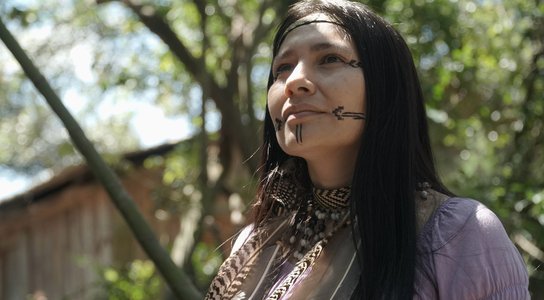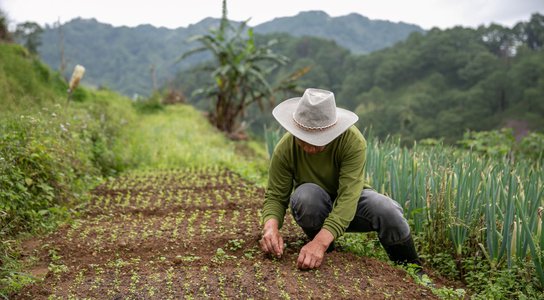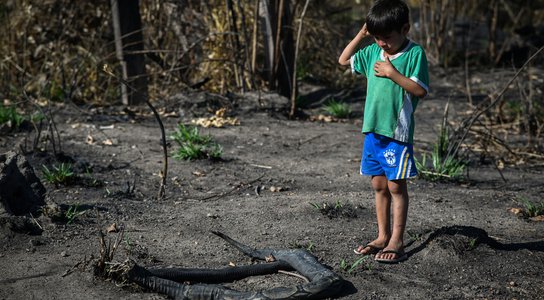Newly elected president Luiz Inácio Lula da Silva has sent a clear message about his commitment to increase environmental protections, fight deforestation and protect those who defend the environment. We at Global Witness welcome the raft of measures he has announced to help undo the destructive policies of his predecessor and prevent further climate wrecking activities.
![GettyImages-1241866351[27].png](https://cdn2.globalwitness.org/media/images/GettyImages-124186635127.width-1280.png)
With the Amazon forest and other wooded lands in Brazil shrinking at alarming rates, diminishing our chances of keeping global warming in check, his success or otherwise has implications at local, national and global levels. However, the task will not be easy. With recent violent, anti-democratic backlash from Bolsonaro supporters and likely reluctance from congress to pass these progressive policies, only time will tell whether Lula’s pro-environment agenda will fully come to fruition.
The data shows that Lula has a good track record when it comes to reducing deforestation with an 70% drop in deforestation by 2012 under his presidency. His intention to bring back the ‘Action Plan on Deforestation’ with Marina Silva back at the helm of the Ministry for the Environment is particularly positive, as these factors were key to his previous success. It’s also encouraging that Marina Silva intends to include in the Plan not only the Amazon Forest but also the Cerrado, the Atlantic Forest, Caatinga, Pampa and Pantanal which contribute significantly to global efforts to limit warming to 1.5 degrees and encourage biodiversity conservation. We hope the Plan will draw on the ideas of civil society, a tactic that was key to previous success in reducing deforestation.
Lula’s previous presidency saw Marina Silva create the Amazon Fund in 2008 to tackle deforestation. Overturning Bolsonaro’s attempts to freeze the fund, Lula’s decree to reactivate the fund is a definitive step in the right direction and we hope to see it used to finance public bodies tasked at reducing deforestation. We urge that appropriate mechanisms are set to up to ensure that this and other sources of international funding are spent in a way that recognises the need for the inclusion of Indigenous peoples and local communities in decision making processes.
Companies operating in Brazil need to know they will be held to account if they break their deforestation commitments. Time after time, we have exposed companies that are wrecking the forest with impunity. Lula’s push to hold companies to account by reinstating the environmental sanctioning process is a welcome change that will hopefully strengthen the powers of Brazil’s environmental agency IBAMA and support EU due diligence initiatives.
While tackling deforestation and reenforcing environmental protections were central to Lula’s election campaign and subsequent policy promises, we, alongside Brazilian civil society groups are encouraged and relieved to see the rights of Indigenous communities also return to the forefront of government policy.
Our latest annual report revealed Brazil is one of the deadliest countries in the world for defenders. Our report noted that the previous administration under Bolsonaro had undone protection for Indigenous land rights, attacked conservation groups, and dismantled and slashed the budgets and resources of forest and Indigenous protection agencies fueling impunity for attacks against defenders. Our recent report on palm oil in Para state is just one of many examples of impunity fueling violence against defenders trying to protect their land and human rights. After four years of systematic attacks and no demarcation of land for Indigenous communities impacted by destructive agribusiness, the appointment of two indigenous women Sonia Guajajara and Joenia Wapichana, respectively, to lead the newly created Ministry of Indigenous Peoples and the National Foundation of Indigenous Peoples (Funai), has been momentous step change from the previous government. While this is excellent news, we’re calling for Lula’s government to accelerate the formal recognition of land rights, so Indigenous and traditional communities can fight impunity with the backing of legal rights to the land.
We believe the ratification of the Escazu Agreement, with the support of the Brazilian congress, is a key step for the new government to create a safe environment for defenders and enable civic space to thrive over the coming years. The agreement if implemented will serve as a legally binding instrument requiring Lula’s government to prevent and investigate attacks against environmental defenders.
Through his policy design Lula is reactivating spaces for the participation of civil society, the revival of the National Council of Environment (CONAMA) is a promising example of this, in addition to his decision to empowering Indigenous peoples by appointing them to key roles in his administration. Lula’s clear demonstration of his interest in hearing the voices of civil society is what we believe will be vital to ensuring successful implementation of these new policies and legislation.
Although Lula will undoubtedly face setbacks from pro- Bolsonaro supporters within congress and Brazilian society, we hope that the new government’s agenda will see a marked improvement for the health of the Amazon and Brazil’s forests, and the rights of communities on the forefront defending the land from climate destruction.Author
-
Marco Mantovani
Amazon Forest Consultant


